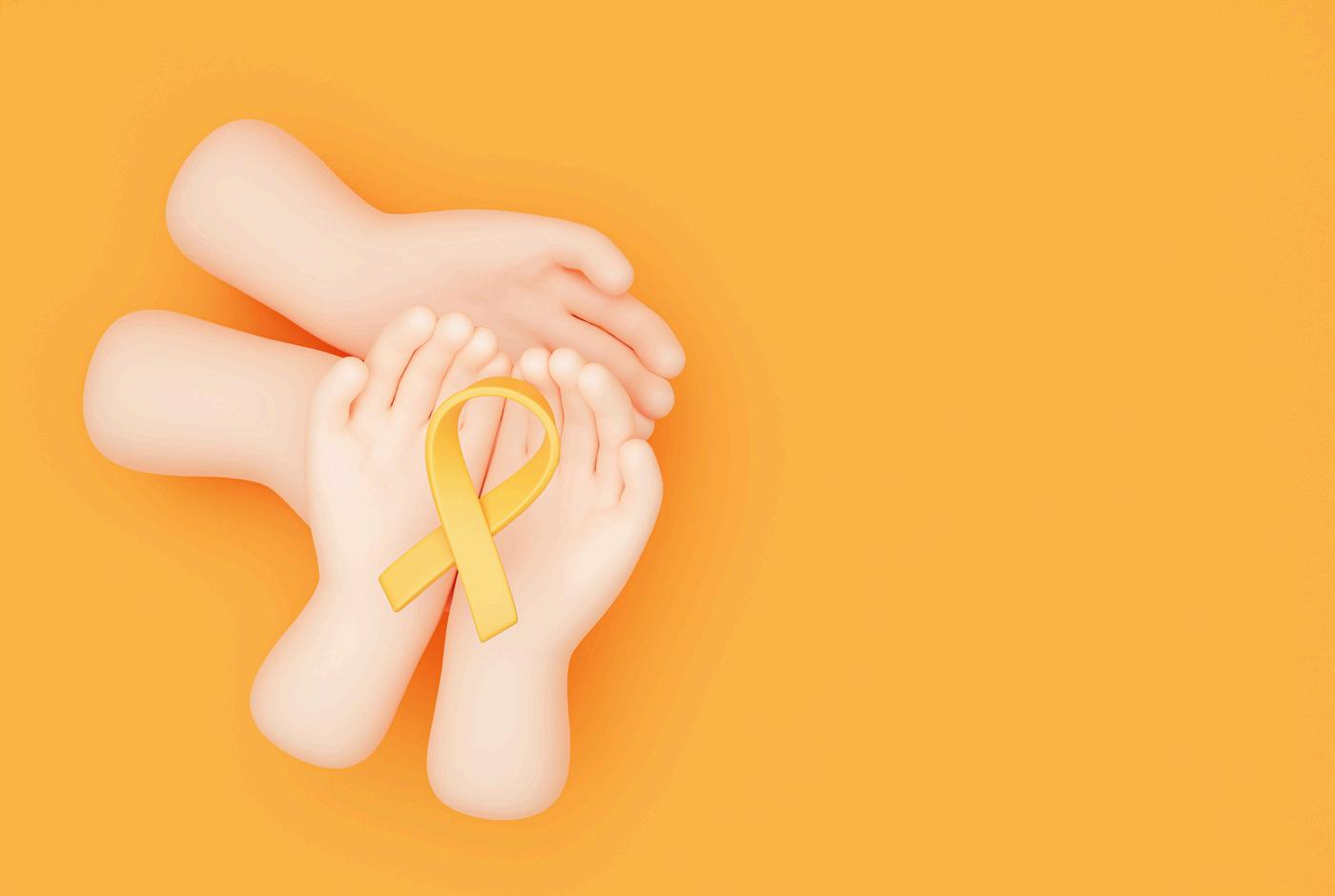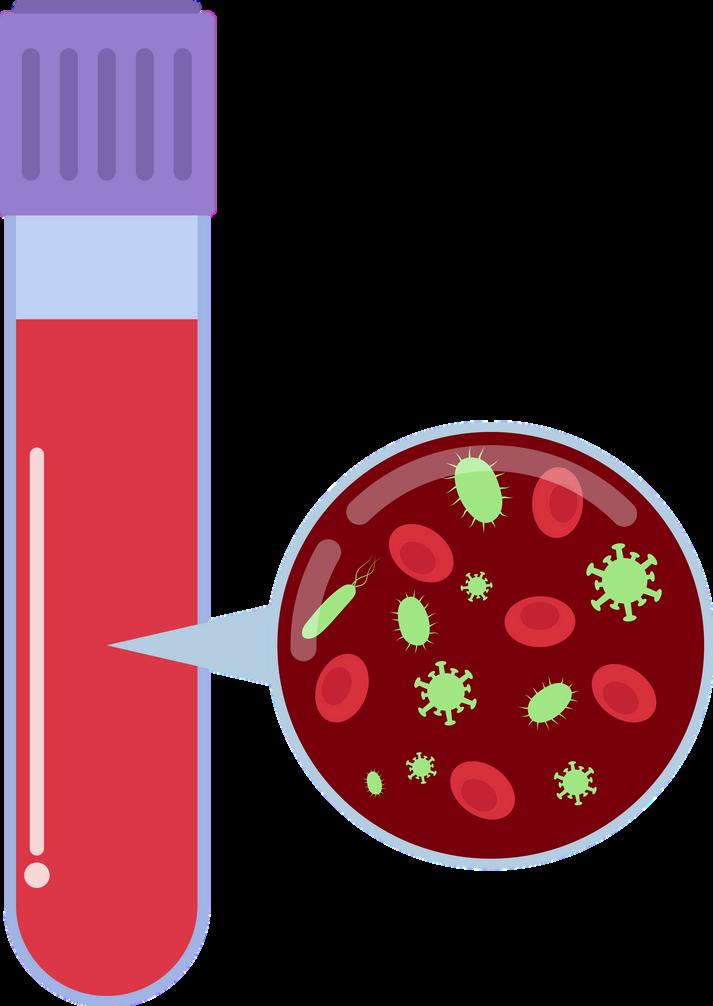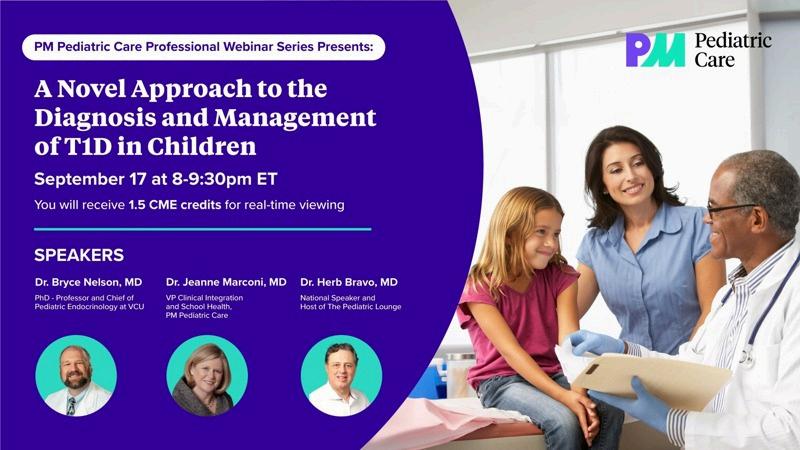

SEPTEMBER 2024, WEEK BEGINNING SEPTEMBER 16


Hello, VA-AAP Members,
As the new school year kicks off, it’ Proper nutrition is foundational to he we must also acknowledge that not a

According to Feeding America’s Map the Meal Gap report, 11.1% of Virginia residents experience hunger equating to one in nine people. This alarming statistic includes 252,480 children, or 13.6% of all children in Virginia. Food insecurity is not just about missing meals; it’s a serious risk factor for poor health outcomes and can contribute to a shorter life expectancy
The disparities in food security we see today are deeply rooted in a history of structural and systemic racism. Addressing these inequities requires a concerted effort from all of us, including ongoing education and advocacy. Dr. Sue Murray, co-chair of our Food Equity Committee has written an informative piece for this week's PRISM.
On a positive note, the VA-AAP launched its new CME webinar series, Beyond the Exam Room: Addressing Health in Pediatrics last night with Dr. Fernando (aka. Dr. Yum) discussing the management of obesity in children and teens. We had a wonderful turnout for our debut session, highlighting our commitment to tackling these critical issues. Remember, these webinars are free for our members a great incentive to invite your pediatric colleagues and friends to join our Chapter and contribute to our collective impact
Let's work together to ensure that every child has access to the nutrition they need to thrive.

Natasha K Sriraman VA-AAP President



Meet Your Executive Committee

PRESIDENT
NATASHA K. SRIRAMAN, M.D.
Events
SEPT 27 - OCT 1

PERCITA ELLIS, M.D.
NCE/AAP National Meeting
NOV 8 - 9
Mohsen Ziai at INOVA
NOV 14
Board Meeting (Virtual)
Committees
ADVOCACY
CHILD SAFETY
FOOD EQUITY
IMMIGRANT HEALTH IMMUNIZATION
MENTAL HEALTH
PEDIATRIC COUNCIL
SCHOOL HEALTH

TREASURER
SUZANNE BRIXEY, M.D. KRISTINA POWELL, M.D.
JANUARY 23 , 2025
VA-AAP Advocacy Day
MARCH 21-23, 2025
Birdsong McLemore at UVA
APRIL 24, 2025 Board Meeting (Virtual)

JUNE 12, 2025
Pediatric Sports Medicine
JULY 18, 2025
BOD Meeting & Dinner
JULY 18-20, 2025
Pediatrics at the Beach
Champions

We have a few committees & champions that are looking for Co-chairs. If you are interested in becoming a co-chair, or even a member of any of these committees, please click the Contact Us button below. Contact Us
ADOLESCENT MEDICINE BREASTFEEDING
EARLY CHILDHOOD
ENVIRONMENTAL
EQUITY, DIVERSITY, & INCLUSION
GUN VIOLENCE
HEALTHY LIFESTYLE
INFECTIOUS DISEASE
ORAL HEALTH
RURAL HEALTH
SPORTS MEDICINE
TELEHEALTH
Septe food follow Hung and d bene restr
free school meals programs are associated with improved academic performance, school attendance, and overall food security for families With the end of the federal waiver in 2022, funding for free school meals in Virginia is again based on income qualification.

There is bipartisan support within the VA legislature for permanent expansion of free school meals Funding remains a substantial barrier In the 2024 VA legislative session, a working group was recommended to work on a sustainable structure for funding universal school meals. The VA-AAP will continue to work with the legislature to advocate towards universal school meals for all VA kids.
We ask you as pediatric providers to screen for food insecurity at every visit. You can direct families in need to Bridge2Resources (Bridge2Resources VA by findhelp - Search and Connect to Social Care) This site can help families identify local community resources as well as enrollment information for state and federal support programs. Make families aware of Virginia Sun Bucks (Virginia SUN BucksVirginia Department of Social Services). This is a new program as of summer 2024 that will provide $120 per school-age child in a qualifying family to spend on groceries
In 2023 the VA Department of Education (VDOE) launched a pilot program to deliver locally grown and raised food products to school nutrition programs. VDOE is also in the early stages of an initiative that will result in a larger



Saturday, September 28
6:30 pm - 8:00 pm
Rosen Centre Hotel Salon 15
Rosen Centre Hotel 9840 International Drive Orlando, Florida 32819
JOIN US FOR AN EVENING OF CONNECTION AND CONVERSATION

T THE VIRGINIA NCE MEET & GREET!

Socialize and mingle with fellow professionals in a relaxed atmosphere


Hosted by


Sponsored by



This

LINK/LOCATION:
Each session will have a unique Zoom link sent upon registration. Registration is required to attend, and all sessions will be virtual only.

Coding for Obesity Management


Bridge2ResourcesVA.org
It is back to school and many of our students need precious resources such as food, clothing, and supplies. Do you know about Bridge2ResourcesVA?

The Virginia Mental Health Access Program (VMAP) and Virginia Chapter of the American Academy of Pediatrics (VA-AAP) are here for you. We have a free social needs platform that anyone can use called Bridge2ResourcesVA.
It doesn’t matter about the time of year; we know that families can often use a little help. Did you know that about 10% of Virginians are food insecure? There are many wonderful non-profits in Virginia that can help with various student and family needs. Have you checked out what resources are in your area? If not, consider using this online platform.
Here are a few reasons why Bridge2ResourcesVA may be very helpful to you:
Bridge2ResourcesVA, sponsored by VMAP and the VA-AAP, is powered by Find help who manages this information and keeps it up to date. We have over 10,000 programs in Virginia It is free and easy to use, just scan the QR code or type in the URL and your zip code https://bridge2resourcesva.org It allows for self-navigation for students, families, and staff. It comes in over 100 languages. It can be searched anonymously. Patient information is not required. It allows individuals to use the site as many times as they would like throughout the year. It provides a wide network of free and reduced-cost services in our communities, such as food, housing, financial assistance, mental health support, legal help, health services, and more It is all in one site
We can add non-profits or services at any time, just let us know which ones we are missing and or suggest a program through the link at the bottom of the landing page!
We can support you in your work by providing posters, postcards, magnets, stickers with QR codes and much, much more.
Please email us with any questions (kpowellvaaap@gmail.com).
Also, please let us know if you would like to set up a Zoom meeting to see a demo.
Thank you, from your VMAP and VA-AAP Team

in Providing Pediatric Mental Health Care

Bi-monthly virtual webinars on critical topics in pediatric mental health. Attend as many as desired and earn up to 1 CME credit per webinar. Held on 1st & 3rd Wednesdays from Feb - Oct @ 7 PM on Zoom



October Collaboration
2 - Collaboration & Communication with Families
vinderpal Singh, MD | Inova | Fairfax, VA
10/16 - Collaboration with Psychiatry
Kate Liebesny, MD | Carilion Clinic | Roanoke, VA
Kryder, MD | Carilion Clinic | Roanoke, VA

Are you a Virginia PCP looking to gain professional education in pediatric mental health? Join us for a REACH PPP!
What to Expect with REACH PPP
A dynamic 3-day, 16-hour in-person interactive course focused on building skills and confidence in diagnosing and treating pediatric mental & behavioral health problems led by Virginia faculty.
Followed by a 6-month, case-based online program. Participants join 12 bi-monthly, 1-hour group conference calls with Virginia primary care and child psychiatry experts to learn how to manage pediatric mental health issues encountered in daily practices.. All participants will receive custom-designed toolkits with guides, assessment instruments, dosing and side effect charts, medication comparison tables, and handouts for patients and parents.

Course Goals
Participants will learn to:
Correctlyidentifyanddifferentiateamongpediatric behavioral health problems such as childhood depression,ADHD,bipolardisorder,anxietystates (includingPTSD),oppositionalandconductdisorders, andpsychosis.
Effectively manage psychopharmacology: selecting medications, initiating and tapering dosages, monitoring improvements, and identifying and minimizingmedicationsideeffects.
Createandimplementatreatmentplanbymobilizing existing resources like family members, school personnel,andotherprofessionalcaregivers.

Register for PEACE

Perinatal Education for Advanced Clinical Expertise (PEACE) is a 2-day comprehensive perinatal mental health education program for maternal health specialists, midwives, and PCPs developed by leading experts in the field. VMAP is presenting this training in partnership with Postpartum Support Virginia.

Scan the QR code on the left to register!
WHEN: WHERE:
Springhill Suites 301 Reserve Ave, SW, Roanoke, VA 24015
Perinatal Mental Health CME Training Identify Consider Manage Create Adopt

Course Objectives:
October 25th - 26th, 2024 8:30 - 4:30pm
COST:
$100
Lodging Provided


perinatal mental health disorders the impact of additional diagnoses psychopharmacology and implement a treatment plan trauma-informed practices

Consensus Statement: Cell Phone Exemptions for Children RESOURCES & REQUESTS
As Virginia schools work to implement a cell phone-free environment, families may have questions for their healthcare providers about medical conditions that make carrying a cell phone necessary for students during school hours.
The following guidance regarding medical exemptions for cell phones in schools does not replace conversations between families and healthcare providers about the risks and benefits of individual children carrying a cell phone.
Gastrointestinal
General Cell Phone Guidance
The medical conditions that may make requiring a cell phone for children in schools are very rare Healthcare providers should provide written recommendations for cell phone use, or other approved technology, to manage medical conditions during school hours
Ear, Nose, and Throat
Students with cochlear implants, bone conduction devices, and hearing aids use cell phone apps to adjust the devices, which qualify them for a medical exemption Specialists may also provide written exemptions for students with tinnitus, who may use cellphones for white noise generation
Endocrinology
Students with diabetes who utilize continuous glucose monitoring technology require access to their cell phones during the school day. Specialists should provide recommendations in the student’s Diabetes Medical Management Plan for cell phone use in schools.
Cardiology
Occasionally children utilize looping vent monitors, where a non-personal cell phone is used to send transmission. This requires a student to have this phone in their backpack near them This device cannot make calls or access the internet but would need to be recognized by the school as an allowed device.
Occasionally children may undergo testing that includes video capsule endoscopy or pH-impedance studies, and students will be given a recording device that is independent of a cell phone.
Genetics
Children with metabolic conditions do not routinely need to access their phones as medical needs are typically managed with written communications to a school nurse. Rarely, glucose monitoring may be required for students with rare genetic hypoglycemic disorders.
Palliative Care and Pain
Children should not require their phones during the day if they have access to a school nurse
Physical Medicine and Rehabilitation
Rarely, children may be monitored with smartwatches or wearable heart rate trackers (e g FitBit) if they have autonomic dysregulation Typically, the phone does not have to be in proximity and the data can be synced later in the day
Pulmonology
Rarely, children may be monitored for pulmonary function or oxygen saturations using a smart phone app, but most children will be able to go to the school nurse
Neurology
Children with epilepsy or seizures, migraines, or other neurological conditions do not require a cell phone in class. If a family is concerned about tracking events, this can be done on paper or through a school nurse
Nephrology
Children on dialysis may require access to their phones to access a ride (taxi services).
Urology
Older children who use catheters may require “timers” to keep to their catheterization or voiding schedule This is often done with a watch with a timer or smart watch; cell phones may not be required.
Anxiety, Depression, and Other Mental Health Conditions
Anxiety, depression, and other mental health conditions do not require a student to keep a cell phone in the classroom
Children and teens are better positioned to learn other coping skills when they do not have access to a cell phone at school and are receiving appropriate medical care Parents can support students with anxiety and other mental health conditions by connecting them with licensed therapists and medical providers In rare instances, a licensed psychologist or psychiatrist may provide written documentation and work with a school on a 504 plan (e.g. using an app to help with relaxation); however, efforts should be made so that cell phones are accessed only in a setting outside the classroom (e.g. nurses’ office) to avoid disruption to classroom learning.
Consensus Statement: Cell Phone Exemptions for Children
The following pediatric specialties have no associated conditions that make carrying a cell phone necessary at school:
• Allergy, Asthma, & Immunology
• Dermatology
• Gynecology
• Hematology & Oncology
• Orthopedics
• Rheumatology
• Sports Medicine
• Surgery
Based on these guidelines, medical reasons to allow cell phone use in schools should be very rare. This consensus statement does not recommend or support non-medical exemptions.
Obtaining a medical exemption for cell phone use. Specialists will continue to support schools and families with written documentation for individual students on a rare, as-needed basis, should the use of a cell phone be considered medically necessary. These determinations will be noted in each patient’s medical record and shared in writing with schools to support the school’s efforts on a student’s Individualized Healthcare Plan (IHP), Individualized Education Plan (IEP), or 504 Plan.
Sample Exemption Letter*
Date:
Name:
DOB:
To Whom It May Concern,
*Courtesy of Children’s Specialty Group, Pediatric Endocrinology, Norfolk VA
[Patient Name] is followed in my pediatric endocrinology practice due to their diagnosis of type 1 diabetes Diabetes affects the endocrine system, which is a “major bodily function” impacting major life activities In addition to endocrine function, caring for oneself, performing manual tasks, walking, seeing, speaking, learning, concentrating, thinking, and communicating are examples of the major activities affected by diabetes Based on these criteria, diabetes is a disability under the Americans with Disabilities Act and Section 504 of the Rehabilitation Act of 1973
Diabetes treatment is individualized based on a multitude of factors. [Patient Name] manages their diabetes with a continuous glucose monitoring (CGM) device (i.e. Freestyle Libre or DexCom) that may or may not be paired with a hybrid closed-loop insulin pump and CGM receiver Use of CGM technology requires the student be allowed to have their cell phone and/or CGM receiver during school hours Close monitoring and treatment of high and low blood glucose and insulin doses are paramount to maintaining optimal glycemic control to reduce complications and enabling [Patient Name] to be well-positioned for optimal learning and academic success If prompt treatment of blood glucose does not occur, [Patient Name] could experience life-threatening complications such as seizures, unconsciousness, or severe lethargy for low blood glucose, or diabetic ketoacidosis for prolonged high blood glucose As such, below is a list of diabetes accommodations [Patient Name] requires in order to remain safe and healthy while in school:
[Patient Name] should be permitted to keep their cell phone and/or CGM receiver during school hours (on silent). The phone and/or CGM receiver must remain within twenty feet of them at all times to allow for continuous data transmission of blood glucose to their parent and/or their insulin pump It also allows for [Patient Name] and other school staff to see blood glucose levels in real time
[Patient Name] should be allowed access to their cell phone and/or CGM receiver to check blood glucose and to administer insulin as needed to maintain glycemic control
[Patient Name] should be allowed access to a glucometer and blood glucose monitoring supplies at all times to manually check blood glucose if the CGM is malfunctioning, or if they need to confirm a blood glucose
I appreciate your attention to this matter Please contact our office at [Phone Number] for additional questions or concerns
Sincerely, [Name]





RESOURCES & REQUESTS





FOLLOWING IS AN ABSTRACT OF HER CONTRIBUTION “PEDIATRICIANS’ PERSPECTIVE”
Theriseofmentalhealthdisordersinyoungpeoplehaspresentedatremendouschallenge,exacerbatedbythedeficitin trained mental health professionals. Pediatricians are positioned to help fill this gap by virtue of their long-standing relationships, understanding of a family’s social context and highly valued perspective. As pediatricians assume greater responsibilityformentalhealthcareinyoungpeople,thereisaneedtoincorporateclimatechangeasarisingrisk.
To address this need, pediatricians can serve in several roles. As clinicians, pediatricians meet the needs of patients sufferingfromclimate-relatedphysicalandmentalhealthharms.Aseducators,pediatriciansadvanceunderstandingof theintersectionsbetweenclimatechangeandhealth.Pediatriciansarealsouniquelypositionedtoadvocateforclimate changesolutions,promotinghopeintheprocess Thischapterdiscussesclimatechange-relatedmentalhealthconcerns inaprimarycaresettingandhowpediatriciansareworkingtoadvancesolutionsacrossthenation
PLEASE CLICK THE “MORE INFO” BUTTON OR SCAN THE QR CODE FOR MORE INFORMATION OR TO ORDER!
RESOURCES & REQUESTS




FOR YOUR AWARENESS





Formoreinformationorresources,please clicktheimageorscantheQRcode




Formore informationor resources,please clicktheimageor scantheQR code

Formoreinformationor resourcespleaseclickthe imageorscantheQRcode


Formoreinformationorresources,please clicktheimageorscantheQRcode
Pediculosis/HeadLice PreventionMonth

Formoreinformationor resources,pleaseclickthe imageorscantheQRcode
Formoreinformationor resources,pleaseclickthe imageorscantheQRcode
FOR YOUR AWARENESS





Formoreinformationor resources,pleaseclickthe imageorscantheQR code


Formoreinformationorresources,pleaseclicktheimageorscantheQRcode




Formoreinformationorresources,please clicktheimageorscantheQRcode

LOOKING

EVERY RIDE SAFE RIDE:
VDH SAFE TRANSPORTATION FOR CHILDREN WORK
ONE YEAR COMMITMENT
BEGINNING SEPT 1, ESTIMATE OF 15 HRS
STIPEND APPROXIMATION: $1500



ACTIVITIES PRIMARILY INCLUDE: PROVIDING INPUT ON PROFESSIONAL DEVELOPMENT TRAINING CONTENT AND PRACTICE TOOLS
ASSIST IN CONDUCTING PROFESSIONAL DEVELOPMENT TRAININGS WITH SUBJECT MATTER EXPERT (2, 2-HOUR SESSIONS, VIRTUAL)
TESTING TOOLS IN PRACTICE FOR FEEDBACK
For more information, or to express interest, please email Jane Chappell by clicking this image or scanning the QR Code.


QI PROJECT
Implementing Substance Use Screening for Teens
Are you using the CRAFFT screening tool with your teens? Not sure what to do with positive screens?
Increasing screening opportunities whenever a teen receives any medical care can increase the chances of identifying risky substance use. Join this three-month practice improvement project to implement the CRAFFT interview for your practice –and build your confidence in supporting teens in risk reduction and referral to further assessment and intervention when needed. This MOC-4 opportunity is available to individual PCPs as well as practices that see kids ages 12 to 21.
1.
3 QI meetings with an interdisciplinary team and a dedicated quality improvement (QI) coach
2.
Explore screening implementation and process improvement, “having the conversation” with your teen patients, and evidence-based approaches for intervention and referral
3.
Receive support from the QI team in submitting your data for three chart review cycles
4.
Participants are eligible to receive up to: 25 MOC IV points; 10 MOC II points; 10 AMA PRA Category 1TM credits; 10 ANCC credits
Timeline: October to December 2024
QI Meeting Dates: 10/10 at 5:30 to 6:30 PM; 11/13 at 5:30 to 6:30 PM; 12/12 at 5:30 to 6:30 PM Points may be submitted for posting in 2024
Registration Deadline: A limited number of seats are available for this opportunity; registration closes Sept. 23
To register, visit the VMAP Provider Portal at login, and select "Provider Education"






“DID YOU KNOW THE VA-AAP IS YOUR VOICE TO LAWMAKERS IN VIRGINIA?”
WE HAVE FOUGHT AGAINST BILLS THAT WOULD INCREASE YOUR:
Medical malpractice insurance rates
Loosen requirements for vaccines
Threaten the quality of medical care children receive in Virginia
WE HAVE ADVOCATED FOR BILLS THAT INCREASE ACCESS TO:
Mental health services for children
Protect children from the harmful effects of tobacco products
Increase Medicaid reimbursement for clinicians
WE USE YOUR CONTRIBUTIONS IN A NONPARTISAN FASHION TO GET TO THE TABLE WITH LAWMAKERS WHO HAVE CRUCIAL ROLES IN LEGISLATION THAT IMPACTS YOU & YOUR PATIENTS.
D TO OUR FELLOW PHYSICIAN GROUPS, PEDIATRICIANS CURRENTLY HAVE THE LEAST AMOUNT OF MONEY IN OUR KIDSPAC-WE CAN DO BETTER!! LET'S DO THIS!!

YOUR VOTE IS



TU VOTO TIENE PODER
Podermos influir directamente en estas politicas y ayudar a dar forma a la salud de nuestra comunidad para las generaciones venideras.
LATA DE VOTACION:
Los funcionarios que votamos para el cargo toman decisiones importantes como Cuánto cuestan los medicamentos recetados
Si tenemos acceso a frutas y verduras frescas...y más.


Voting is one of the most powerful ways to influence change at the local, state and national levels. There is a connection between voting and health equity.
Election Day is Tuesday, November 5
Candidates elected to positions up and down the ballot will shape policies that directly impact the health of young people, families and communities.
AAP is leading a nonpartisan Get Out the Vote campaign to provide pediatricians with the tools they need to cast their ballot and share the importance of voting.
To access these resources, please click here or scan the QR Code

Voter Registration Badges
Thousands of health professionals across the country are using Vot-ER badges to give their patients an opportunity to access a nonpartisan voter registration platform in the hospital or clinic.
Get a free voter registration badge today and join the movement for a healthier democracy!
To request your badge, please click here or scan the QR Code
Children are counting on us; vote like their future depends on it.

To download, please click here



VOTING IS EASY!
Registration Deadlines
On-line registration or mail in registration is October 14, 2024. Or, register in person on election day at your designated polling place with proper ID.
If your address has changed since you last voted, you need to update your registration
VOTE EARLY
IN VIRGINIA Vote Early starting September 20, 2024
Apply for early absentee ballot online, by mail, or in person from September 20 - October 25
PLAN NOW! DON’T MISS YOUR CHANCE TO VOTE!
For non-partisan voter information, please click the button below or scan the QR code. Virginia.gov Voter Information Page
NEWS FROM AAP

Join the Conversation!
Enhance digital screening and treatment tools that help manage suicide risk. Focus groups with teens, parents, & practice teams.
In search of: Primary care practices (one pediatrician/one staff) to:
Participate in a virtual focus group about a digital app-based teen suicide prevention intervention
Refer parents/adolescents who may be interested in participating in a virtual focus group about the app
Length of Focus Groups: About one hour Dates of Focus Groups: Spring 2024 - exact dates TBA
Practices that qualify: Primary care practices that do NOT have embedded/co-located mental health services
Each Focus Group Participant will receive a $50 gift CARD IN RECOGNITION OF THEIR EFFORTS AND EACH PARTICIPATING PRACTICE RECEIVES
$250
• Note that there will be separate focus groups for practices, parents, and teens, respectively
HEART+ STUDY RESPONSE FORM
click here or scan QR Code
The American Academy of Pediatrics’ Pediatric Research in Office Settings (PROS) teams are currently recruiting clinicians/staff, parents, and teens to participate in focus groups as part of their HEART+ teen suicide prevention study. The purpose of the focus groups is to explore the use of a digital teen suicide intervention by pediatric primary care practices with no embedded mental health services –the idea is for this intervention, ideally shaped by those who would ultimately use it, to serve as a support bridge until a teen can secure comprehensive mental health services.
Below you will also find information about a new tool, launched by the Center of Excellence on Social Media and TheHelpAt-RiskTeensThrive(HEART+)studyneedsyourhelp!
This research opportunity is a collaboration between:
The American Academy of Pediatrics (AAP) Pediatric Re-search in Office Settings (PRS) research network
University of Pittsburgh (Pitt)
Study Funder: National Institute of Mental Health (NIMH)
Principal Investigator: Stephanie Stepp, PhD, at Pitt
Research opportunity purpose:
Take part in refining digital suicide prevention screening and treatment tools that identify, triage, and manage teens with depression or at risk of suicide. Help design digital screening and treatment tools that are user-friendly for teens, parents, and practices!
This research opportunity is part of a larger study that will later pilot test these digital suicide prevention tools within pediatric primary care
What is involved for your practice?
Identify patients 12-17 years with a past history of depression or suicide behavior to invite to a 1-hour confidential focus group
Refer parents of patients 12-17 to PITT to learn more about the confidential focus group Parent permission is required for a teen to participate. Parents are invited to separate confidential focus groups too! Select practice team members (clinicians and staff) to participate in a 1-hour confidential focus groups.
To join the study:
Return the Study Participation Form via email (prosops.org) OR fax (847-434-8910)
Want to know more?
Please reach out to Donna Harris at dlharris@aap.org or 630-626-6362


September 27October 1, 2024




NEWS FROM AAP
The AAP has launched a new 6-unit PediaLink course Free to all registrants!!
Practical Strategies for Implementing Trauma-Informed Care
Description
Pediatricians are often the first health care professionals to encounter children exposed to trauma and have the greatest potential for early identification and response to childhood trauma and traumatic stress. This course, which builds upon the “Trauma Informed Care and Resilience Promotion” PediaLink course, aims to enhance practical skills to identify and respond to child traumatic stress, including how to help regulate disrupted caregivers. The course explains the connection between relational health and trauma-informed care and identifies strategies for providers and caregivers to promote relational health. Additionally, the course dives deeper into trauma symptoms and response by age groups, including guidance on trauma-informed care interventions and psychotropic prescribing.
Define relational health and why it is important for child development and life course trajectories. 1.

Course Details
Start Date: August 12, 2024
Online Access Expires: August 11, 2027
Credit Expires: August 11, 2027
Course ID: 61585
Explain the importance of identifying and responding to child traumatic stress. 2.
Identify when medication is indicated for children exposed to trauma. 3.
Identify how trauma symptoms present in infants and young children. 4.
5.
Describe how pediatricians and other healthcare professionals can address trauma in school-aged children and adolescents.
Distinguish how traumas, stress, depression, and substance use disorder by caregivers can disrupt neuronal processes of the human caregiving network. 6.
To register for this free webinar, please click “Register Now” or scan the QR Code
Physician-PracticalStrategiesforImplementingTrauma-InformedCare

Faculty
Subject Matter Experts
Khadijia Tribie Reid, MD, MPH, FAAP
Brooks Keeshin, MD,FAAP
Lindsay Shepard Abdulahad, PhD, LCSW
Rachel Gilgoff, MD, FAAP
Deborah Rodriguez, MD, FAAP
Heather Forkey, MD, FAAP
Reviewers
Andrew Garner, MD, FAAP
Kathleen Franchek-Roa, MD, FAAP
Moira Szilagyi, MD, PhD, FAAP
Davida Schiff, MD, FAAP
AAP Staff
Sandra George
Zaneta Balaban
Tammy Hurley
Sondra Moore
Hira Khan
TheAmericanAcademyofPediatrics(AAP)isaccreditedbytheAccreditationCouncilforContinuingMedicalEducation(ACCME)toprovidecontinuingmedicaleducationforphysicians TheAAPdesignatesthisenduringmaterialforamaximumof300AMAPRACategory1Credit(s)™ Physiciansshouldclaimonlythecreditcommensuratewiththeextentoftheirparticipation intheactivity
Thisactivityisapprovedfor3.00pointsofMOCPart2creditbytheAmericanBoardofPediatricsthroughtheAAPMOCPortfolioProgram.Allapprovedactivitiesmustbecompletedbythe MOCCreditApprovalEndDate.AlldeadlinesandMOCpointvaluesshouldbeconfirmedbycheckingtheABPActivityCatalogwithineachphysician’sABPPortfolio.ConsultyourABPportfolio atwwwabporgfordetailsaboutyourspecificcertificationrequirements Forquestionsabouthowtoaccessthisactivity,contactMOCPortfolio@aaporg AlliedHealthProfessional-PracticalStrategiesforImplementingTrauma-InformedCare
TheAmericanAcademyofPediatrics(AAP)isaccreditedbytheAccreditationCouncilforContinuingMedicalEducation(ACCME)toprovidecontinuingmedicaleducationforphysicians PAsmayclaimamaximumof3.00Category1creditsforcompletingthisactivity.NCCPAacceptsAMAPRACategory1Credit™fromorganizationsaccreditedbyACCMEorarecognizedstate medicalsociety. Thisprogramisaccreditedfor3.00NAPNAPCEcontacthoursofwhich0.00containpharmacology(Rx)content,(0.00relatedtopsychopharmacology)(0.00relatedtocontrolled substances),pertheNationalAssociationofPediatricNursePractitioners(NAPNAP)ContinuingEducationGuidelines TheAAPisdesignatedasAgency#A17 Uponcompletionoftheprogram, eachparticipantdesiringNAPNAPcontacthoursmustsendacompletedcertificateofattendancetoce@napnaporg Paymentof$15forNAPNAPmembersandnonmembersisrequiredvia creditcardforallNAPNAPcontacthourrequests Keepthiscertificateforyourrecordsforsix(6)years RequestsforduplicatecertificatesshouldbemadetotheAAP

CallforNominations:NationalNominating Committee(NNC)Committee,Council,and SectionRepresentative–DueSeptember27,2024

TheAAPBoardofDirectorswillbeappointingaFelloworSpecialty FellowwithleadershipexperienceinAAPcommittees,councils,and sectionstoserveontheAAPNationalNominatingCommittee,agroup thatistaskedwithselectingcandidatesfortheAAPPresident-electand theAt-largeBoardofDirectorspositions.Thepositionisa3-year,nonrenewabletermthatwillbegininJanuary2025.
NNCmemberswillnotbeeligibletorunforthepositionofAAP President-electuntilatleast3yearsafterrotatingoffthecommittee.
SEPTEMBER 23-28
Thosethatwouldliketobeconsideredshouldsubmitanapplication by5:00pmCTonFriday,September27,2024,to nominations@aap.org.
Theapplicationalsoincludesinformationregardingtheroleand responsibilitiesofNNCmembers.Toensurediverseleadershipwithin AAP,membersarelimitedtooneleadershippositionatatime.Please emailnominations@aap.orgwithanyquestions.
TRAINING OPPORTUNITY

PediatricDiabetes Care AccessProgram & TRAINING OPPORTUNITY




Learning Update from Across the State

Children’s Hospital of Richmond Grand Rounds are one a break for the summer and will return in September 2024.
Grand Rounds are held Tuesdays from 12 noon - 1 pm.

No Grand Rounds scheduled for the week.
Learning Update from Across the State

Human Trafficking 101:
What Every Healthcare
Professional Should Know
Thursday, September 19, 2024
8:00 am - 9:00 am
Brickhouse Auditorium
Deborah Lowen, MD Medical Director
CHKD Child Advocacy Chair
Dawn Scaff, PFNE Operations Supervisor
CHKD Child Advocacy Center
Daisy Schuurman
Commercial Sexual Exploitation of Children (CSEC)
Forensic Interviewer, CHKD Child Advocacy Center

Contact Julie Miller for Meeting ID & Passcode
No Grand Rounds scheduled for the week.
Learning Update from Across the State

“The Public Health System and the Healthcare Delivery System: Working Together to Protect the Community’s Health”
Cynthia B. Morrow, MD, MPH, Health Director, Roanoke City and Alleghany Health Districts
Tanglewood Mill Mt. Conference Room 1701
Thursday, September 19, 2024
7:30 am - 8:30 am
Lunch & Learn Webcast
“ Behavioral Insomnia of Childhood and Delayed Sleep Wake Phase Disorder”
Dr. Anthony Staples, DO Pediatric Neurology, Carilion Children’s
Monday, September 16, 2024
12:30 pm - 1:30 pm
Meeting ID: 215 263 407 462
Passcode: mfgVkn
Meeting ID: 276 898 370 879
Passcode: i5yVvH
UPCOMING COURSES & CONFERENCES







